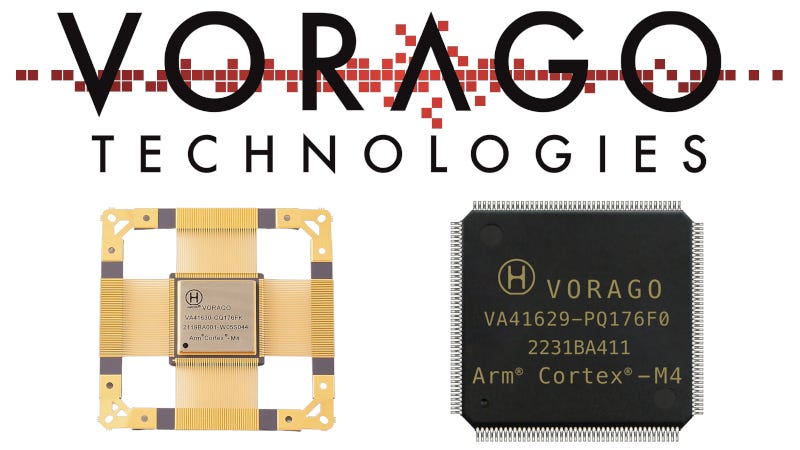Radiation-Tolerant Chips for Satellite Constellations Introduced
New Vorago Microcontrollers Expand Company’s Deep-Space Heritage
Four radiation-tolerant microcontrollers purpose-built for low Earth orbit (LEO) markets have been introduced by Vorago Technologies. The company says its new chips are significantly less expensive than traditional space-grade components. The first chips are expected to shop in the first quarter of 2026.
“As more companies move into space, the expanded VA4 family delivers the reliability needed to operate satellites in orbit and complete their missions securely.”
Bernd Lienhard, Vorago Technologies
A producer of radiation-hardened chips protected with HARDSIL technology, Vorago is now democratizing access to its highest-reliability solutions to immediately benefit the explosion of commercial and government LEO operators and satellite constellations.
As satellite constellations multiply, the demand for electronics that can withstand the extreme radiation and thermal dynamics of space is surging. Satellites in orbit are projected to double by 2030, reaching 58,000-100,000 versus 12,000 today and just 5,000 a few years ago. Key demand drivers include:
LEO mega-constellations (for example, Starlink, Project Kuiper, Eutelsat OneWeb)
Constellations for communications, media, and scientific research, enabling broadband networks, content distribution, and large-scale data collection.
Until now, high reliability meant high costs, bulky components, and more complex integration reserved for deep-space and defense missions. Vorago proposes to change that equation by making its microcontrollers affordable to use in Earth’s low, medium, and geospatial orbits for the first time, bridging the gap between standard upscreened commercial electronics and fully radiation-hardened chips to deliver dependable performance at a lower cost.
Four new Radiation-Tolerant by Design (RTbD) microcontrollers using trusted ARM Cortex M4-based cores join VORAGO’s expanding VA4 family—including the extended-mission VA42620/VA42630 and the cost-optimized VA42628/VA42629 for short or lower orbit missions. Superior radiation protection is embedded directly into the silicon to solve the reliability challenges of satellite constellations while improving on the inefficient, multi-chip redundancy approach.
“Space systems can’t afford downtime, and they can’t afford to fail in orbit. Debris now rivals active satellites for space in many low-orbit areas,” said Bernd Lienhard, CEO of Vorago Technologies. “As more companies move into space, the expanded VA4 family delivers the reliability needed to operate satellites in orbit and complete their missions securely, without requiring three backup systems to get there. It’s a smarter, more sustainable way to scale satellite constellations without contributing to space junk. Our ‘rad-tolerance by design’ approach—versus upscreening after the fact—significantly cuts weight, complexity, and waste while maintaining mission assurance.”



